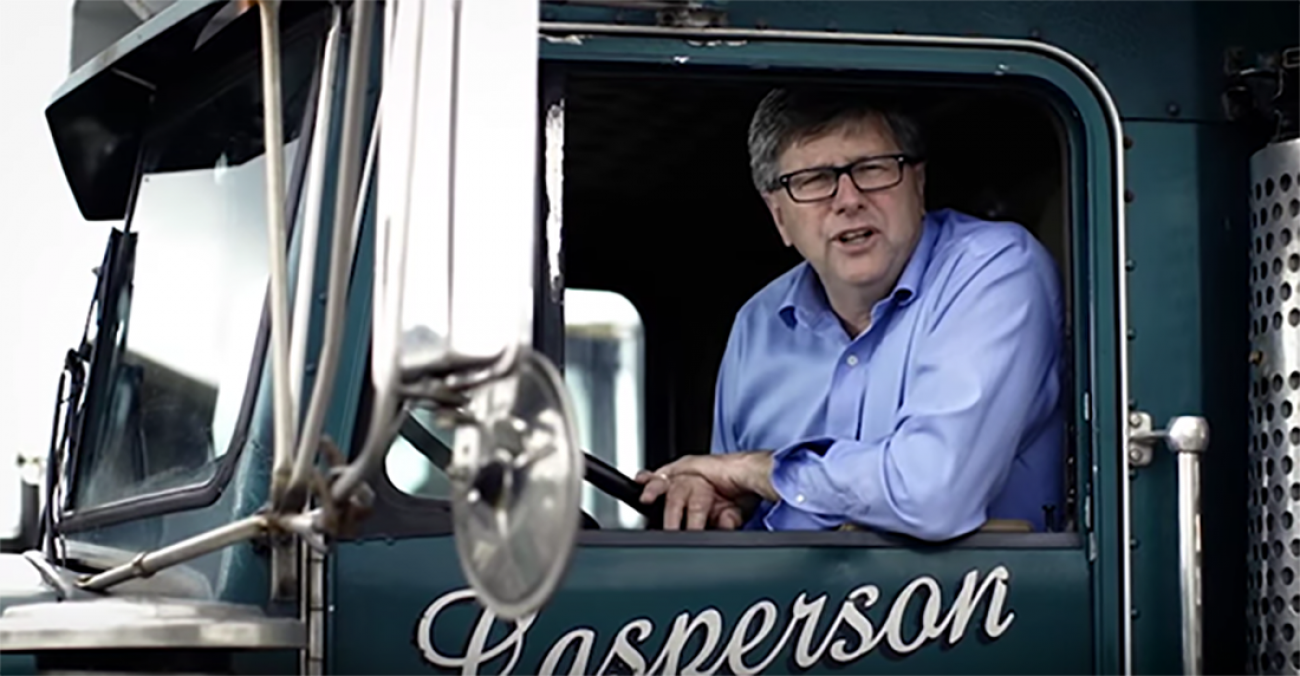Michigan Republican Senator: I’m no anti-environmental villain

Update: Michigan DEQ staffers to Gov. Snyder: Veto bill to weaken cleanup standards
Dec. 21: That's a wrap! What bills passed, died in Michigan lame duck for the ages
Related: See what Michigan lame-duck bills we're tracking
LANSING — A powerful Republican pushing to allow development on wetlands and more radioactive waste in landfills says he’s not a “dastardly guy who wants to destroy the environment.”
State Sen. Tom Casperson, R-Escanaba, on Wednesday said he’s been unfairly portrayed by environmentalists and reporters during the Michigan Legislature’s frantic lame duck session.
“It’s unfair to label it and frame it that each person who disagrees with the environmental community is radical,” said Casperson, who chairs the Senate Natural Resources Committee.
“They’re the ones, in my opinion, who are radical,” he added, referring to environmental groups.
Casperson, who is term-limited, is behind a slew of bills that would loosen state environmental regulations in favor of industry, developers and other private property owners. The efforts include opening more wetlands and lakes to unregulated development, allowing landfills to accept more low-level radioactive waste and preempting local control over tree cutting and removal.
Related stories:
- Opinion | C’mon, Michigan. Don’t get hysterical about ‘tree police’ bill
- Michigan lawmakers: ‘Every little thing’ doesn’t need environmental protection
- As he exits, Michigan lawmaker wants to gut wetland protection, boost waste
- Michigan House approves bills letting industry vote on environmental rules
- Senator wants to defang the ‘radical’ Michigan DEQ. He just may do so.
Casperson’s push comes in the final weeks before Gov.-elect Gretchen Whitmer, a Democrat, is to be sworn into office along with a more Democrat-heavy Legislature, and it has angered environmentalists and local government leaders.
The comments came after Casperson announced rare welcome news for some of his critics: He was scrapping Senate Bill 1210.
That legislation would have barred local governments from regulating mining activities and paved the way for a 500-acre gravel mine to open in the quaint village of Metamora, which residents had contested for 30 years.
Mining industry officials had pushed for the legislation, saying local opposition was threatening Michigan’s supplies of aggregate materials used in construction.
Casperson said he didn’t have enough information to comfortably advance the bill in the session’s waning days, and he was moved by the passionate opposition from Metamora residents.
The community, southeast of Flint, is already home to four gravel mines, and residents feared one more mine — far bigger — would ruin the town.
“They were heartfelt and they were sincere about it, and I certainly don’t want to disrupt their lives,” Casperson said, adding that a compromise solution to the fight is still needed.
Still, Casperson objected to how environmentalists and news media portrayed his efforts on mining and other environmental issues, where he sees himself standing up for “little guy” property owners against overzealous regulators.
“Most of the [news] stories I hear are framed in a way that look like our stance is unreasonable, based on what you’re hearing from them,” he said. “That’s unfair. Why not down the middle, saying people are concerned about personal property rights...and the environmental community’s concerned about the wetlands?”
On Tuesday, the Senate sent one of Casperson’s most loudly contested proposals to the House. Environmental critics say Senate Bill 1211 would open thousands of acres of wetlands and thousands of lakes to unregulated dredging, filling or construction.
"Despite public outcry, lawmakers are rushing this damaging legislation through lame duck. It literally paves the way for eliminating lakes and wetlands that provide vital water quality protections and important recreation resources for our state,” Tom Zimnicki, agriculture policy director for the Michigan Environmental Council, said Tuesday.
Casperson this month is capping a 16-year career in state politics, He previously spent two decades in a log trucking business his family owns — an experience that helped shape his pro-industry, pro-private property rights views.
His legislation over the years has regulated metallic mining in Michigan, capped how much land the state can own and cut red tape for those wishing to groom beachfront property. Earlier this year, legislation he sponsored gave industry representatives a larger role in environmental regulation.
Michigan Environment Watch
Michigan Environment Watch examines how public policy, industry, and other factors interact with the state’s trove of natural resources.
- See full coverage
- Subscribe
- Share tips and questions with Bridge environment reporter Kelly House
Michigan Environment Watch is made possible by generous financial support from:
Our generous Environment Watch underwriters encourage Bridge Michigan readers to also support civic journalism by becoming Bridge members. Please consider joining today.
See what new members are saying about why they donated to Bridge Michigan:
- “In order for this information to be accurate and unbiased it must be underwritten by its readers, not by special interests.” - Larry S.
- “Not many other media sources report on the topics Bridge does.” - Susan B.
- “Your journalism is outstanding and rare these days.” - Mark S.
If you want to ensure the future of nonpartisan, nonprofit Michigan journalism, please become a member today. You, too, will be asked why you donated and maybe we'll feature your quote next time!



